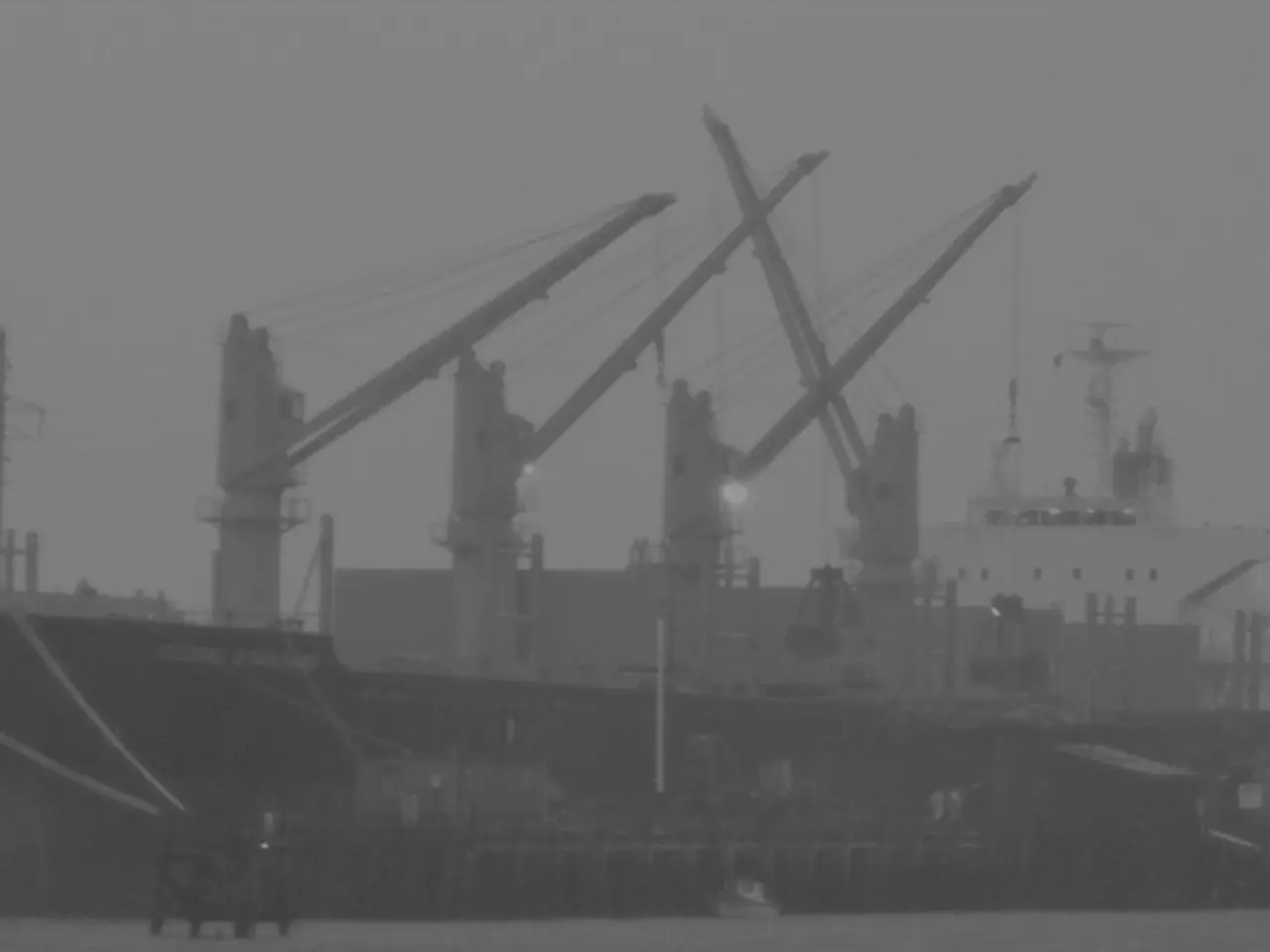Weichai Power Debuts Singapore's Initial Research Vessel Powered Exclusively by Biodiesel
The President 100, Singapore's first harbor ship powered entirely by 100% biodiesel (B100), has commenced a 1,000-hour continuous trial in Singapore's port waters. The vessel, a joint venture between Weichai, Pinnacle Marine, the China Classification Society (Singapore), Nanyang Technological University's Marine Energy and Sustainable Development Centre (MESD), and Pinnacle Marine, was officially launched on July 15, 2025 [1][2].
The trial's primary objective is to assess B100 biodiesel's long-term performance, emissions, and reliability in real-world marine conditions. The data collected from this trial will be instrumental in developing future refueling, storage, and operational standards for B100 marine fuel. This initiative is part of a broader effort to advance maritime decarbonization, with B100 biodiesel being touted as a clean-energy solution offering a pathway toward net-zero operations [1].
The President 100 is equipped with two Weichai WP13C450-18BF marine engines and two CCFJ20J-W5BF generator sets, optimized for B100 to reduce emissions while maintaining high efficiency. This optimization sets a benchmark for the global shipping industry's green transformation [1].
While the trial is ongoing, no final results or findings from the trials have been published yet. However, the project is significant as it could establish a reference model for the maritime energy transition in Singapore and contribute to industry-wide standards for biodiesel-powered vessels.
In summary, the launch and operational testing of the President 100 mark the start of full-scale operational testing for B100 marine fuel in real-world conditions. The trial aims to provide critical data that will support the development of future refueling, storage, and operational standards for biodiesel as a marine fuel. As the trial progresses, detailed findings from the President 100's biodiesel trials remain forthcoming [1][2].
| Aspect | Details | |---------------------------|----------------------------------------------------------| | Vessel | President 100, 16-meter harbor ship | | Fuel type | 100% biodiesel (B100) | | Trial duration | 1,000 continuous hours | | Trial location | Singapore port waters | | Objectives | Assess long-term performance, emissions, reliability | | Partners involved | Weichai, Pinnacle Marine, China Classification Society (Singapore), NTU Marine Energy and Sustainable Development Centre | | Current status | Trial ongoing, no final results published yet | | Expected impact | Reference model for maritime biodiesel standards, maritime decarbonization benchmark |
References: [1] https://www.maritime-executive.com/article/singapores-first-biodiesel-powered-harbor-ship-launched [2] https://www.maritime-executive.com/article/singapore-launches-biodiesel-powered-harbor-ship-for-1000-hour-trial
- The trial's critical data, once published, could significantly contribute to the development of environmental-science standards for renewable-energy sources in the maritime industry, particularly focusing on the use of biodiesel as a clean-energy solution.
- The success of the President 100's trial, coupled with its optimized Weichai engines and generator sets, could pave the way for the global shipping industry's finance-backed transformation toward sustainable, net-zero operations, aligning closely with the goals of climate-change mitigation.
- The environmental impacts of the President 100's trial extend beyond Singapore's waters, as the learnings and best practices from this trial could serve as an exemplar for other countries in the environmental-science community, fostering a global shift toward the adoption of renewable-energy sources in the maritime sector.






